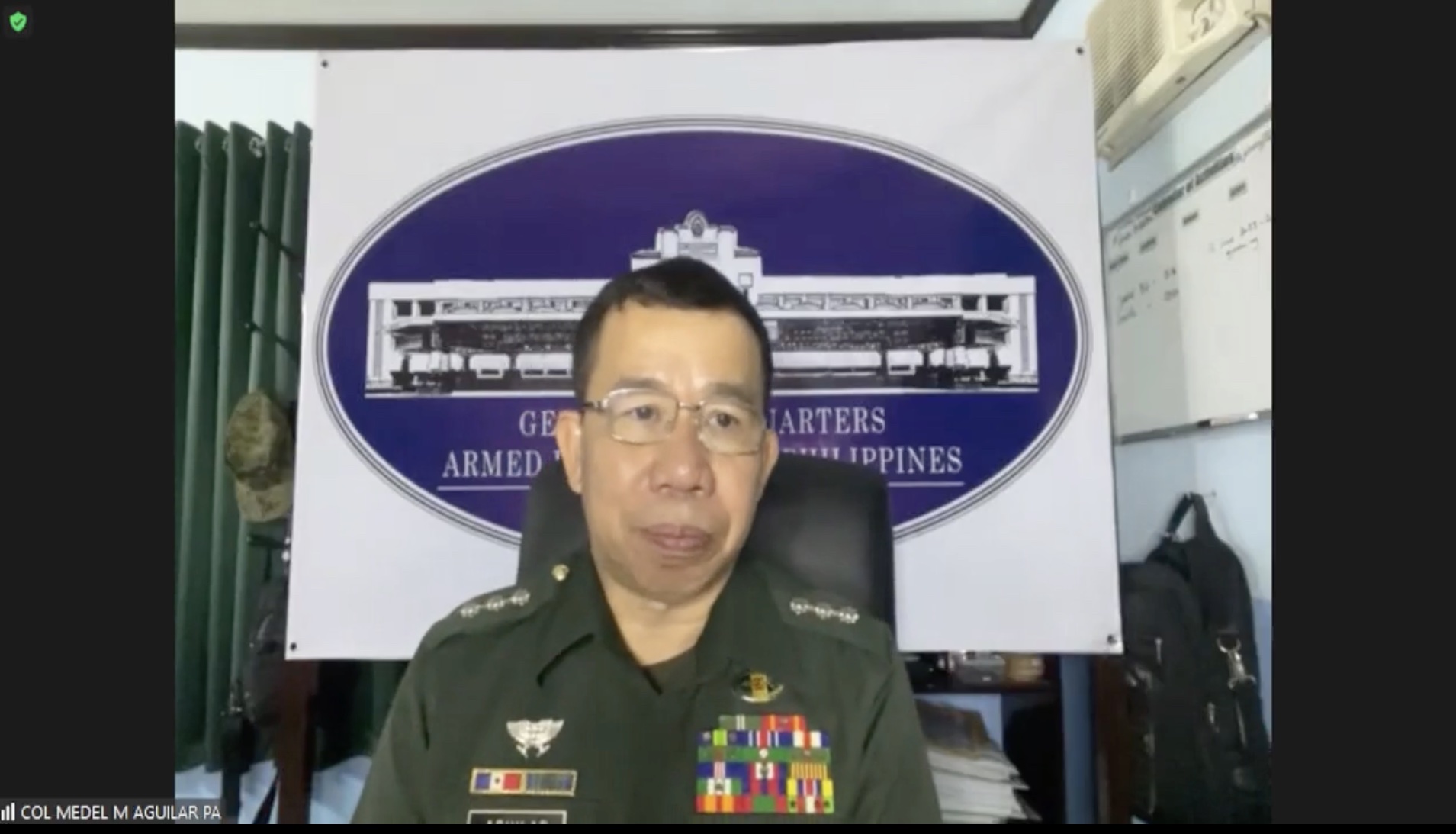AFP counters China's 'indisputable' claim over Ayungin Shoal

Through a bit of a wordplay, the Armed Forces of the Philippines (AFP) rejected anew China's recent statement about its supposed "indisputable" sovereignty over Ayungin Shoal.
Col. Medel Aguilar, AFP spokesperson, said China's use of the word "indisputable" when referring to its claim over Ayungin Shoal is, in itself, disputable.
"The use of the word 'indisputable' is disputable," Aguilar told reporters on Saturday, Oct. 7.
He was reacting to the remark issued by China Coast Guard (CCG) spokesperson Gan Yu on Oct. 6 that two Philippine Coast Guard (PCG) vessels and two supply boats chartered by the Armed Forces of the Philippines (AFP) allegedly intruded into the adjacent waters of Ren'ai Reef in Nansha Islands on Oct. 4.
The CCG official was referring to the latest resupply mission of the AFP and PCG in Ayungin (Second Thomas) Shoal, which China calls Ren'ai Reef, in the Kalayaan Island Group (Spratly Islands), which they call Nansha Islands.
"China has indisputable sovereignty over the Nansha Islands, including the Ren'ai Reef, and its adjacent waters, and firmly opposes the illegal delivery of construction materials by the Philippines to the illegally grounded warship," Gan said.
However, Aguilar enumerated three reasons as to why China's claim in the South China Sea, which encroaches into the West Philippine Sea (WPS), was invalid.
"For one, the UNCLOS [United Nationas Convention on the Law of the Sea] says no to its claim. Second, the arbitral award invalidated it. Third is several countries have expressed their support to the Philippines and to the rules-based international order, while no one has openly supported China in its actions at the WPS," Aguilar said.
An arbitral tribunal that was constituted under the UNCLOS, an international agreement that establishes a legal framework for all marine and maritime activities, invalidated China's massive claims over the entire South China Sea based on its so-called "nine-dash line" historical basis.
The Permanent Court of Arbitration (PCA) issued an award in 2016 stating that China's claims had no international basis and it violated the Philippines' sovereign right in the WPS.
This strengthened the Philippines' position in the WPS, which was backed by several countries led by the United States.
However, China continues to deny the legality of the arbitral ruling as it strengthens its presence in the WPS.
For Aguilar, China's actions were only leading them to global isolation.
"Its unfounded claim and offensive and irresponsible actions at the WPS are leading it to global isolation," he said.